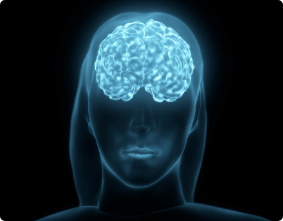
Actor portrayals
Treatment may help you manage your uncontrollable body movements from TD
No matter if you have mild, moderate, or severe uncontrollable body movements, the first step on your treatment journey is talking with a specialist.
While your primary care physician may be the specialist you’re used to seeing, they may refer you to a psychiatrist, neurologist, or other provider who has more experience diagnosing and treating tardive dyskinesia (TD). Find a healthcare provider with experience diagnosing and treating TD by using the Find a Specialist tool.
There are different kinds of movement disorders. Specific conditions or movement disorders have different treatment plans and medicines. It’s important to figure out what movement disorder you might have so you can find a treatment that’s right for you.
What is A goal of TARDIVE DYSKINESIA (TD) treatment?
TD is thought to be caused by too much dopamine signaling in the brain. A goal of TD treatment is to reduce extra dopamine signaling and TD movements.

WHAT IS A RECOMMENDED TYPE OF PRESCRIPTION MEDICINE USED TO TREAT TARDIVE DYSKINESIA (TD)?
The type of prescription medicine recommended to treat TD is a VMAT2 inhibitor. These medicines are thought to reduce extra dopamine signaling in the brain.
It’s important to know that VMAT2 inhibitors are not all the same. How they’re taken—and whether they’re right for you—depends on your overall health and preferences and should be discussed with your healthcare provider.


GET PREPARED TO TALK ABOUT TREATING TD
Being informed about your treatment preferences can result in a more effective conversation with your doctor, leading you to the best treatment option for you.

TD Treatment options are available
Learn about a prescription medicineYour healthcare provider might consider stopping, adjusting, or switching your mental health medicine to manage your TD for a number of reasons. If they do, they may keep an eye on a few things like:
- If your symptoms have improved
- If your symptoms improve for a short period of time and then return
- Your mental health and how you’re feeling overall
It's important to speak to your healthcare provider and continue to discuss appropriate treatment options if your symptoms don't improve.
Did you know?
Anticholinergic medicines (such as benztropine) are approved to treat other movement disorders, but they are not approved to treat TD. Your healthcare provider may prescribe you an anticholinergic medicine depending on your diagnosis. If you have TD and are on an anticholinergic but still experiencing uncontrollable movements, it's important to talk to your healthcare provider.
Get information about td.
Learn more about TD and how to start a conversation with your healthcare provider about TD diagnosis and treatment.
Sign up for InfoTalk to your HEALTHCARE PROVIDER
some things to discuss include:
The talking points above can help give your healthcare provider a better understanding of your uncontrollable body movements, how they are impacting you, and if they are TD. You can also record short videos of your uncontrollable body movements to show your healthcare provider. Your healthcare team can help you create a treatment plan that is right for you.
Talk to your HEALTHCARE PROVIDER
some things to discuss include:
The location of your uncontrollable body movements
When your uncontrollable body movements started and how frequently they occur
If others have noticed your uncontrollable body movements
The impact of these uncontrollable body movements on your daily routine
How these uncontrollable body movements affect your thoughts and feelings
How these uncontrollable body movements affect your relationships with others
The talking points above can help give your healthcare provider a better understanding of your uncontrollable body movements, how they are impacting you, and if they are TD. You can also record short videos of your uncontrollable body movements to show your healthcare provider. Your healthcare team can help you create a treatment plan that is right for you.
Get more TD information and tips
SIGN UP FOR INFO
Ready to talk to your healthcare provider about TD or TD treatments?
Within the last year, the Doctor Discussion Guide has been downloaded over 115,000 times,‡ helping many have meaningful discussions with their doctor.
‡Source: Google Analytics 4, January 1, 2025–August 31, 2025.

Looking to take the first step in managing your uncontrollable body movements?
Help may be closer than you think. More than 25,000 neurologists, psychiatrists, and advanced-practice healthcare providers who have experience with diagnosing and treating TD are available.† Use the Find a Specialist tool to take your first step.
†Data on file; 08/2025. Neurocrine Biosciences, Inc.

Jeff, a real patient living with TD
Do you know someone who may have TD?
Educate yourself on the cause, symptoms, and impact of TD.
Find additional support